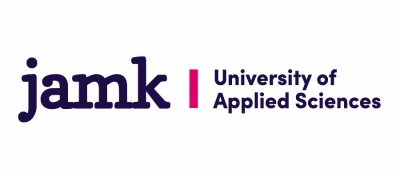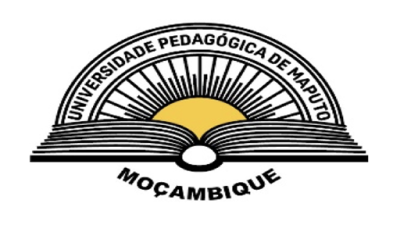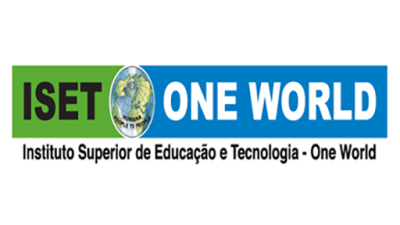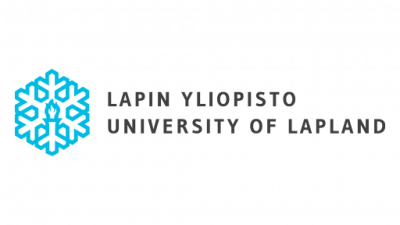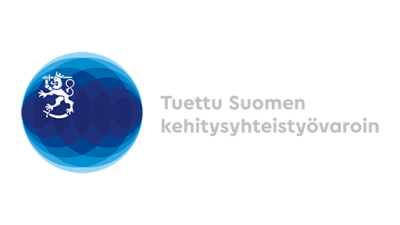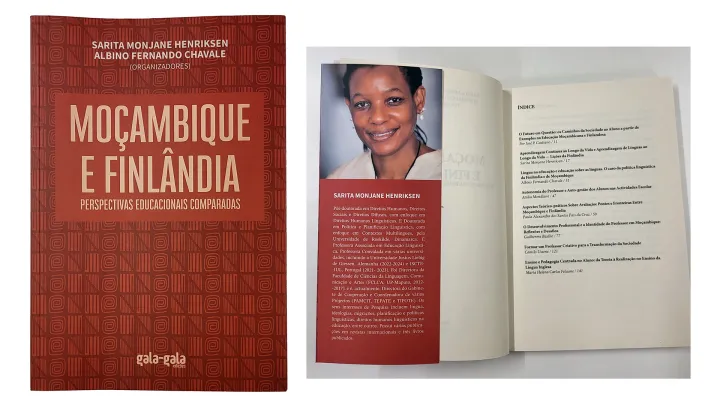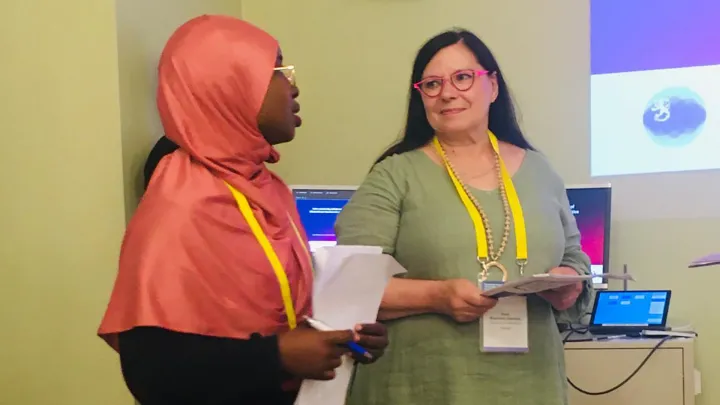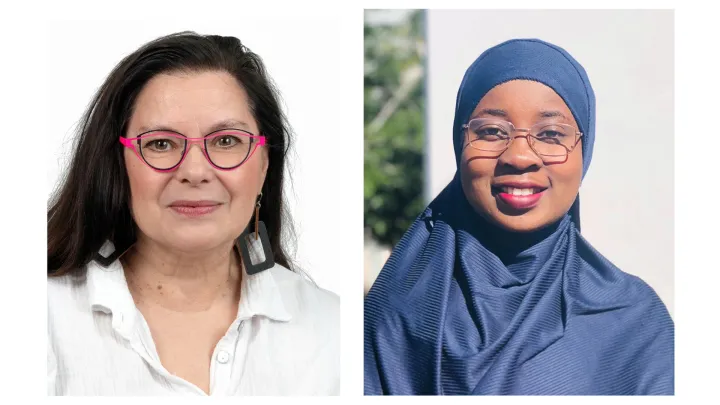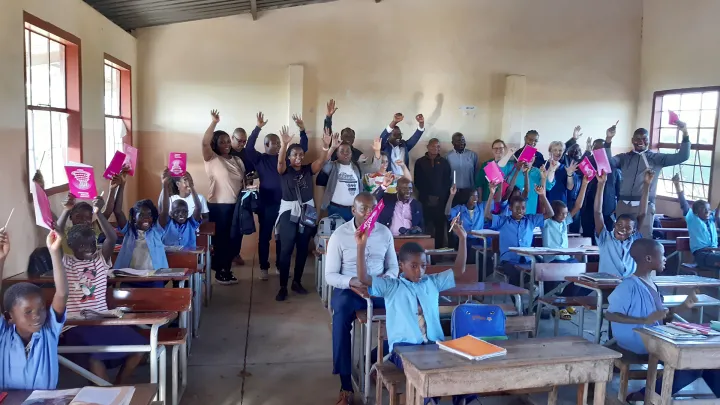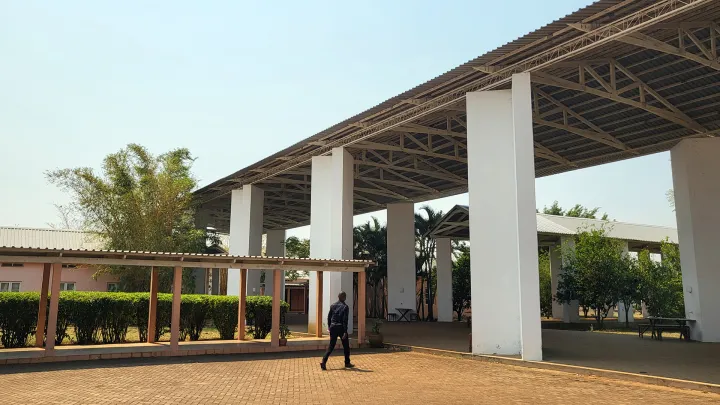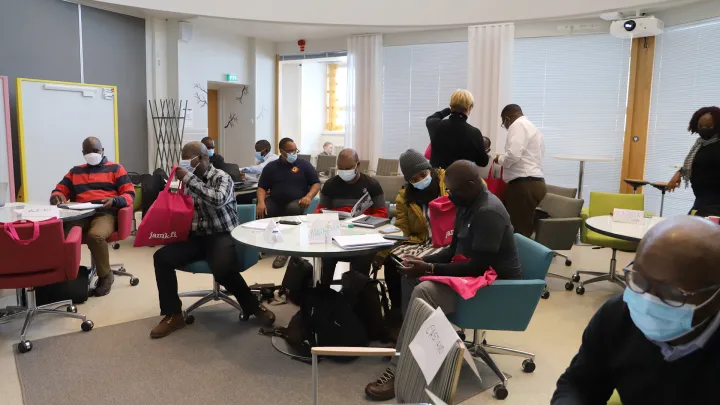TEPATE Mozambique
Theory-Practice Balance in Teacher Education - the TEPATE Project - focuses on enhancing the theory-practice balance of teacher education at the Mozambican partner HEIs.
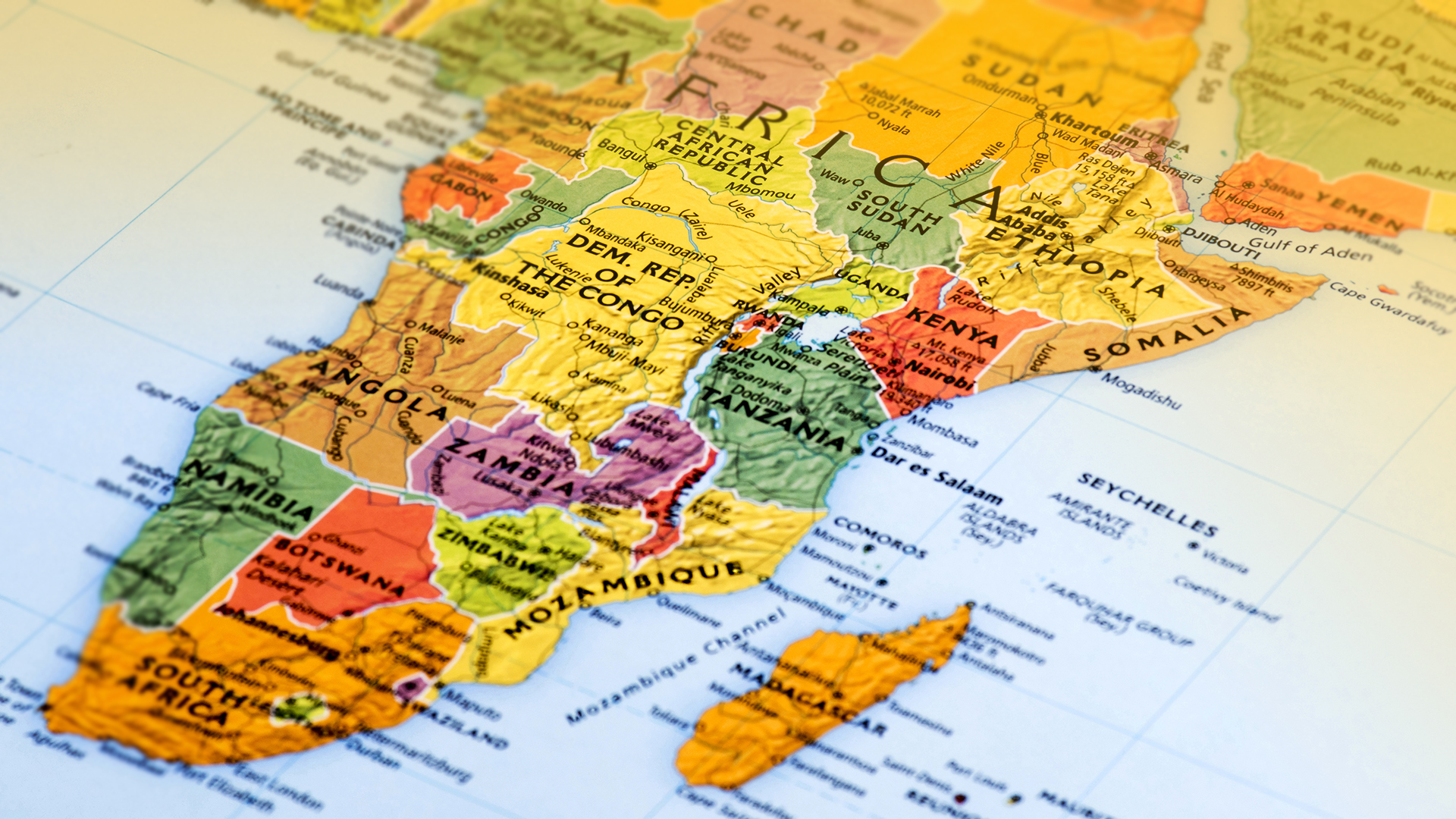
School enrolment rates in Mozambique have improved considerably over the last decade. Unfortunately, school completion rates and learning outcomes have not improved at the same pace. The Theory-Practice Balance in Teacher Education Project aims at improving the quality and relevance of initial teacher training at the Mozambican partner HEIs and by so doing, support the efforts of the Mozambican government to improve the overall quality of education in the country.
How? Our approach
Teaching is a profession that requires theory-based pedagogical thinking incorporated into everyday actions of a teacher. This means that teachers are required to master both theoretical knowledge and research based-approaches as well as practical skills. In Mozambique, teacher education at the moment is regarded excessively theoretical, not providing graduating teachers with sufficient pedagogical skills to apply learner-centred pedagogy in practice.
The TEPATE Project focuses on enhancing the theory-practice balance of teacher education at the Mozambican partner HEIs.
The expected outcome of the project is increased capacity of the Mozambique partner HEIs to develop and deliver teacher education that provides teacher trainees with better skills to apply learner-centred pedagogy in practice. Besides academic teacher training, the TEPATE project also targets the non-academic teachers of the country by providing them with in-service training materials, as well as selected school managers in order to support the rooting of new pedagogical practices on a school level.
Expected results
Output 1: Capacity-building for teacher educators
Since the beginning of the 1990s, increasing attention has been paid to the crucial role of teacher educators in educational policy, practice, and research. However, teacher educators are a heterogeneous group with varying educational backgrounds and preceding careers. In the TEPATE project, we aim at enhancing the capacities of teacher educators at Mozambique partner HEIs to provide learner-centred teacher education to new generations of teaching professionals.
Activities
The key activities include (but are not limited to): conducting a training needs analysis for the teacher educators at Southern Partner HEIs, and designing and implementing a Training of Trainers Programme. The content of the Training of Trainers Programme is incorporated with the aims of the Output 2.
Output 2: Development of teacher education study programmes
The quality and relevance of the teacher training programmes at UP Maputo and ISET One World is developed
As part of the TEPATE project, three study modules, each equalling 5 ECTS, will be developed and integrated to the teacher training of the Southern partner HEIs. By so doing, we can increase the availability of and access to quality teacher education among Mozambican teacher students.
Furthermore, the teaching practise component will be further developed at the partner HEIs. The teaching practise component is an essential part of teacher education, serving a wide range of purposes. It also provides the prospective teachers with an authentic environment in which to practise a variety of pedagogical skills required from a teacher.
Activities
The key activities include (but are not limited to): assessing the current structure and practises of teaching practise at the Southern partner HEIs, developing the guidance and assessment practises of the teaching practise component, and training selected supervising teachers.
Output 3: Easy-to-access professional development materials for teachers
Teachers, like every one of us, are life-long learners, and teacher education should be a is a career-long continuum. Teachers’ opportunities for in-service education is also very much linked with the relevance and quality of education. As part of the TEPATE project, in-service training material packages will be prepared and disseminated to 2000 Mozambican teachers through partner HEI’s networks. The content of the in-service training materials derive from the materials produced as part of the other activities of the project.
Activities
The key activities include (but are not limited to): mapping out training needs of in-service teachers, re-figuring materials to compact in-service training material packages, and designing a model for the distribution of refresher course materials.
Output 4: Enhanced pedagogical leadership skills for school managers
School plays a key role in improving school outcomes by influencing the motivations and capacities of teachers, as well as the school climate and environment. Further, effective school leadership is essential to improve the efficiency and equity of schooling. Thus, when reforming teaching and learning practises of schools, school managers must be involved in order to gain sustainable results. Thus in the TEPATE project, the Finnish and Mozambican partners will look for ways in which to strengthen the capacities of school managers.
Activities
The key activities include (but are not limited to): Designing core content and structure of capacity building workshops for school managers and conducting capacity-building workshops for school managers.
Latest materials and activities
Theory-Practice Balance in Teacher Education Project (HEI-ICI) from the Perspective of Arene’s Criteria for sustainable RDI Activities
Arene – the Rectors’ Conference of Finnish Universities of Applied Sciences – approved a new criteria for research, development and innovation activities of Finnish Universities of Applied Sciences (UASs) in February 2024. The purpose of the introduced criteria is to guide the UAS to plan, develop, implement and assess their RDI operations so that they are ecologically, socially, culturally and economically sustainable and responsible. TEPATE project has been evaluated from the perspective of this criteria in 2024, by Irmeli Maunonen-Eskelinen at Jamk.
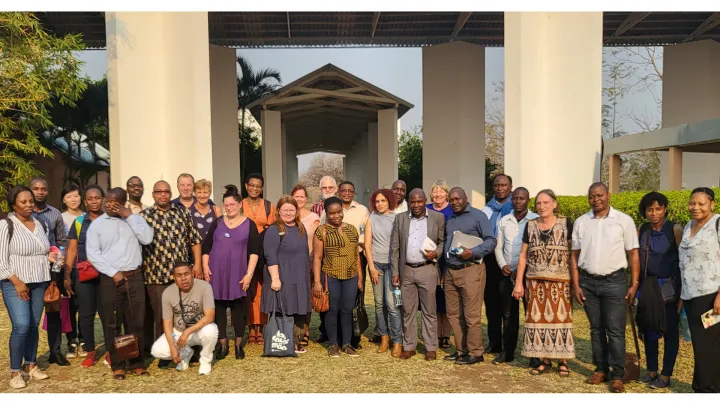
News
Inter-university collaboration boosts teacher training in Mozambique
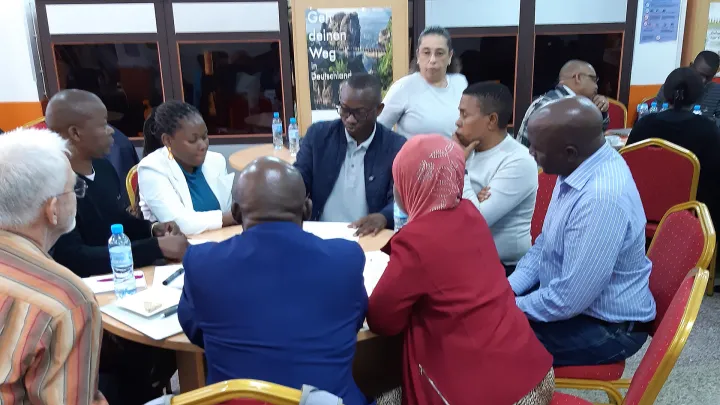
Article
TEPATE – Training of Trainers programme completed

News
Jamk's projects on display at Africa Day 2024
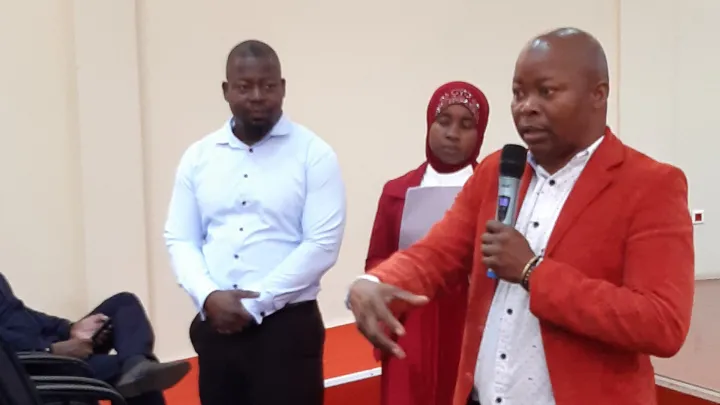
Article
More than 900 people participated in the trainings
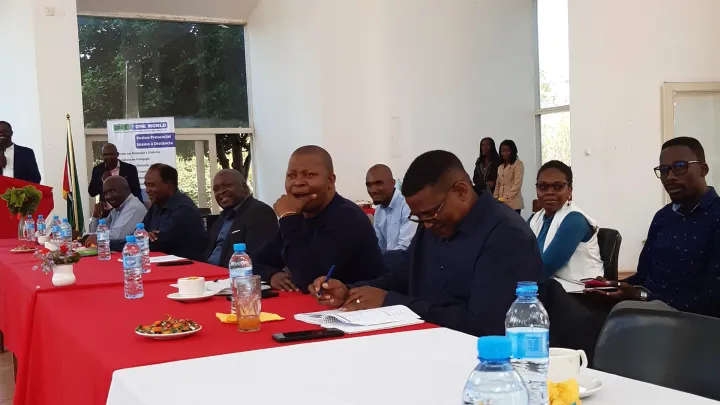
Article
The activities at ISET One World in May 2023
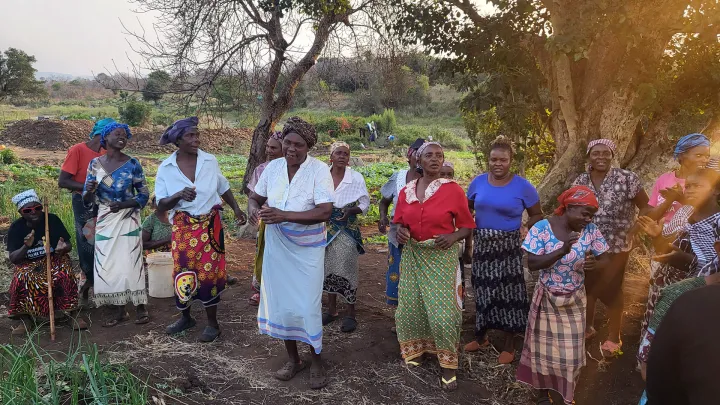
Article
Visit to Primary School and Women association at Changalane district
Busy times in the TEPATE project - many activities ongoing during 2023
In May 2023 a fruitful, intensive week in Mozambique included workshops on project activities at the Pedagogical University Maputo (UP) and ISET One World, an international conference, and courtesy visits and meetings with the UP’s and ISET One World’s top management, the Finnish ambassador and education counsellor at the Finnish embassy, and the Mozambican Vice-Minister of Education, in May 2023. Read more

News
Teacher education development in Mozambique on display at Africa Day 2023
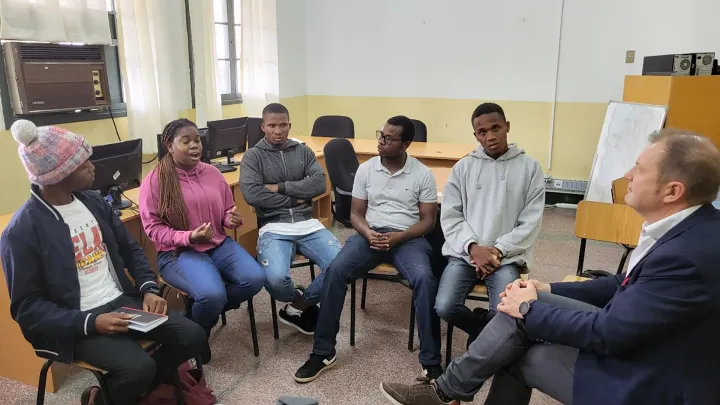
Piloting the Study Modules: Students feedback on Teaching Practice
Previous activities
International Conference on May 23, 2023
Based on TEPATE project activities the international conference took place on May 23, 2023 at Universidade Pedagógica de Maputo, Mozambique. The conference gathered different stakeholders and developers of teacher education to share experiences and knowledge on topical issues regarding teacher education. Conference Program (pdf, Portugese)
Co-developing week in Mozambique, May 2023
The TEPATE project partners (Jamk university of applied sciences, University of Lapland, Instituto Superior de Educação e Tecnologia One World and Universidade Pedagógica de Maputo) had an intensive working and co-developing week in Mozambique on May 22-26, 2023.
TEPATE kick off seminar on 24 November 2020
The seminar was organised as a hybrid event at the Central Library of the Universidade Pedagogica de Maputo, due to the current pandemic with restricted in-person participation. Online participation to the seminar was available in Zoom. The language of the seminar was Portuguese.
The project is managed by Principal Lecturer Irmeli Maunonen-Eskelinen from Jamk’s School of Professional Teacher Education.
With extensive experience from developing teacher education both in Finland and internationally, Irmeli has engaged with the HEI ICI Instrument since the launch of the Programme in Vietnam, Nepal, and Ethiopia.
Irmeli Maunonen-Eskelinen
Project partners - TEPATE project
Universidade Pedagogica de Maputo
Universidade Pedagogica de Maputo (Pedagogical University of Maputo) is a public Higher Education Institution situated in the city of Maputo. It was initially known as Higher Pedagogical Institute, at the time of its establishment in 1985. The institute was originally established to offer initial teacher training for teachers at all educational levels in the fragile post-independence education system. In 1995, it became the 'Pedagogical University', and the university expanded to having branches in every province in the country. At the end of 2018, the University had nearly 62.000 students and 2.296 academic staff. As of January 2019, the Pedagogical University was abolished and five new universities were created, among them the 'Pedagogical University of Maputo' operating in the capital, which is now a partner in the TEPATE project.
Today, the Universida de Pedagogica de Maputo has 8 faculties, 6 research centres, slightly over 14 000 students, and 400 academic and administrative staff. Its mission is to provide teacher training for all levels of education in Mozambique. The University provides a total of 50 four-year under-graduate courses ("licentiate"); 29 Master's degree courses, and 8 PhD programs. Universidade Pedagogica de Maputo provides initial teacher training for both primary and secondary education through separate courses with shared study modules.
Instituto Superior de Educação e Tecnologia - One World
Instituto Superior de Educação e Tecnologia - One World is a higher education institute established in 1998 by a Mozambican NGO Ajuda de Desenvolvimento de Povo para Povo (ADPP) to train teachers and other professionals in the areas of Pedagogy and Community Development. Initially, ISET-One World operated under the tutelage of UP. In 2005, ISET-One World was recognised as an independent HEI.
The mission of ISET-One World, based in a rural area for direct, close contacts to the surrounding communities, is to provide high-quality teacher education especially in the rural, poor areas of Mozambique. The vision of ISET-One World is to become a centre of excellence in the fields of education and teacher education and it aims to train pedagogical professionals with a high-level of technical skills and a theoretical knowledge of educational sciences for the benefit of all citizens. Hence, a teacher education programme (Degree in Pedagogy, Curso de Licenciatura em Pedagogia) was introduced at ISET-One World in 2012. The 4-year programme also qualifies the graduates to train primary and secondary school teachers at Teacher Training Colleges.
Jamk University of Applied Sciences
Jamk University of Applied Sciences, located in Central Finland, is an international higher education institution with expertise in 8 different fields of study. Jamk has about 8000 students and 740 staff members. The basic tasks of Jamk include degree awarding education, RDI, and continuing education and services.
The School of Professional Teacher Education at Jamk offers three education programmes: that of a a professional teacher, vocational special needs teacher, and study counsellor. Originally established in 1962, the School also provides in-service training for approximately 2000 teachers in Finland and abroad every year. Since 1994, the School has also delivered teacher education programmes in English and, since 2013, the School has provided teacher education programmes also entirely online. The experts of the School have engaged in the HEI ICI projects since the launch of the Programme, as well as in numerous international educational development projects in four continents.
University of Lapland
University of Lapland was established in 1979 by setting up our first study programme – teacher education. The university is located at the Arctic Circle, in the city of Rovaniemi, Finland. Today the University of Lapland has over 4 300 graduate and postgraduate students in four faculties: Education, Law, Social Sciences and Art and Design.
The focus areas of the Faculty of Education include education, training, learning and teaching in northern communities, participatory education and pedagogy that take differences into account, adult learning, wellbeing at work, and the wellbeing of children and the youth in northern regions. The Faculty of Education hosts the UNESCO/UNITWIN Network Teacher Education for Social Justice and Diversity, which focuses on developing teacher education globally, especially in the fields of indigenous education, inclusive education, and digital and rural education.
Associated partner: UFF
U-landshjälp från Folk till Folk i Finland sr (UFF) is a not-for-profit, non-governmental humanitarian foundation. The activities were launched in 1987. The foundation’s purpose is to contribute to and to enable and promote ecological, social, and economic sustainability in the world in order to enable people, especially the less privileged, to increase their possibilities for reaching their full potential as humans and social beings.
The foundation has a vision of a socially, ecologically, and economically sustainable, fair world, where everyone has the opportunity to choose and to take responsible, positive action.
